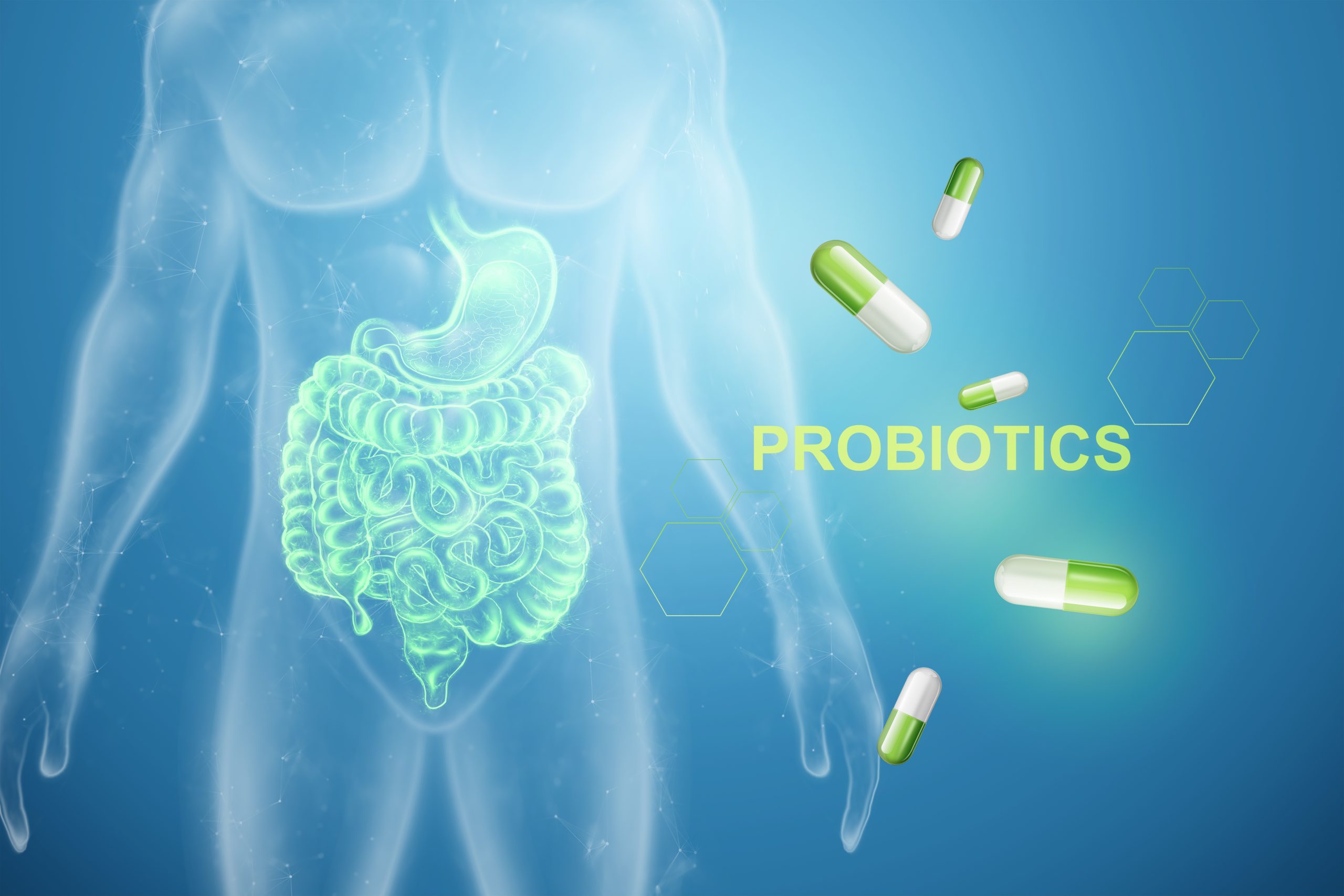BLOG
Related Between Probiotics and Immune System Health

SUMMARY
Our intestines meet our external environment and our internal environment. Thus, it develops a defense mechanism against attacks that may come from outside, and this mechanism can be supported by beneficial bacteria. They help develop a defense against pathogenic bacteria that make us sick. Probiotics, which interact with the gut and are described as beneficial bacteria, support the immune system with various immune pathways.
INTRODUCTION
It is not surprising that the gastrointestinal tract, which is the greatest bridge between the body and the external environment, is in close and constant contact with the immune system. Gut bacteria develop and regulate the host immune system. Thus, the immune system affects the composition of the gut microbiome. Especially the host immune system; It is responsible for ensuring a beneficial composition of microbiota that controls the overgrowth of specific bacteria, as well as reacting to pathogenic bacteria or molecules that meet the intestinal barrier [1]. The interaction between the immune system and pathogens is also regulated by microorganisms that can directly interact with pathogenic bacteria or indirectly stimulate the immune system to do the same. Therefore, intestinal homeostasis is achieved and maintained when the immune system strikes an appropriate balance between tolerance to commensal (non-harmful), reciprocal (beneficial), and opportunistic (pathogenic) bacteria [2]. This balance can only be established through the immune system and the gut microbiota[3].
In healthy adults, the composition of the bacterial flora in feces is constant regardless of time. Bacteroidetes and Firmicutes are the two main bacteria in the human gut ecosystem, making up more than 90 percent of all microorganisms. Probiotics are microorganisms that, when consumed in sufficient amounts, can be beneficial to health. Lactobacillus and Bifidobacteria are the most commonly administered probiotics in clinical practice. The yeast Saccharomyces boulardii and Bacillus species are also widely used [4], [5]. The function of probiotics is closely related to the types of microorganisms that colonize the gut. Probiotics and the interaction between host cells and gut flora is an important factor influencing host health. Probiotics have an effect on the gut ecosystem by regulating intestinal mucosal immunity, interacting with commensal microflora or potentially harmful pathogens, producing metabolites (such as short-chain fatty acids and bile acids), and acting on host cells through signaling pathways. These mechanisms may contribute to the inhibition and elimination of potential pathogens, improving the intestinal microenvironment, strengthening the intestinal barrier, alleviating inflammation, and enhancing the antigen-specific immune response [6]. Even specific strains of bacteria can act on the intestinal luminal environment, the intestinal mucosal barrier and regulate the mucosal immune system. Probiotics can affect different cells involved in innate and adaptive immunity, such as dendritic cells, monocytes, Natural Killer (NK) cells, macrophages, lymphocytes and epithelial cells. In particular, they can activate pattern recognition receptors (PRRs) which are expressed on immune (i.e., M cells in Peyer’s patches) and non-immune cells (i.e., intestinal epithelial cells) [7]. Probiotic organisms interact with the host’s epithelial linings, attracting immune cells to the site of infection and inducing specific immune markers [8]. Thus, the host protects its health.

Figure 1:
The human body can harbor pathogens (bad bacteria) and probiotics (good bacteria) in its intestines, pathogens are a clear threat to the body, while probiotics support our health by helping the immune system. (Figure is taken from [9].)
RESULT
Our immune system likes to work in sync with our digestive system because threats from the outside can take over us through the digestive system. Probiotics can also interact with our gut, stimulating our immune system in a variety of ways. Thus, they can take part in the protection of human health as a supporter.
REFERENCES
[1] C. Llorente ve B. Schnabl, “The gut microbiota and liver disease”, Cell. Mol. Gastroenterol. Hepatol., c. 1, sy 3, ss. 275-284, May. 2015, doi: 10.1016/j.jcmgh.2015.04.003.
[2] C. T. Peterson, V. Sharma, L. Elmén, ve S. N. Peterson, “Immune homeostasis, dysbiosis and therapeutic modulation of the gut microbiota”, Clin. Exp. Immunol., c. 179, sy 3, ss. 363-377, Mar. 2015, doi: 10.1111/cei.12474.
[3] G. La Fata, P. Weber, ve M. H. Mohajeri, “Probiotics and the Gut Immune System: Indirect Regulation”, Probiotics Antimicrob. Proteins, c. 10, sy 1, ss. 11-21, 2018, doi: 10.1007/s12602-017-9322-6.
[4] A. Hotel, “Health and Nutritional Properties of Probiotics in Food Including Powder Milk with Live Lactic Acid Bacteria – Joint FAO/WHO Expert Consultation”, c. 2014, Oca. 2001.
[5] O. Simon, “Micro-Organisms as Feed Additives – Probiotics”.
[6] C. Zhang, H. Wang, ve T. Chen, “Interactions between Intestinal Microflora/Probiotics and the Immune System”, BioMed Res. Int., c. 2019, s. 6764919, Kas. 2019, doi: 10.1155/2019/6764919.
[7] F. Cristofori, V. N. Dargenio, C. Dargenio, V. L. Miniello, M. Barone, ve R. Francavilla, “Anti-Inflammatory and Immunomodulatory Effects of Probiotics in Gut Inflammation: A Door to the Body”, Front. Immunol., c. 12, s. 578386, Şub. 2021, doi: 10.3389/fimmu.2021.578386.
[8] R. Ashraf ve N. P. Shah, “Immune System Stimulation by Probiotic Microorganisms”, Crit. Rev. Food Sci. Nutr., c. 54, sy 7, ss. 938-956, Oca. 2014, doi: 10.1080/10408398.2011.619671.
[9] M. Design, “Top 5 Things to Know About Beneficial Bacteria – Florajen Probiotics”, Florajen High Potency Probiotics, 01 Nisan 2019. https://www.florajen.com/top-5-things-to-know-about-probiotics (erişim 16 Mayıs 2023).

